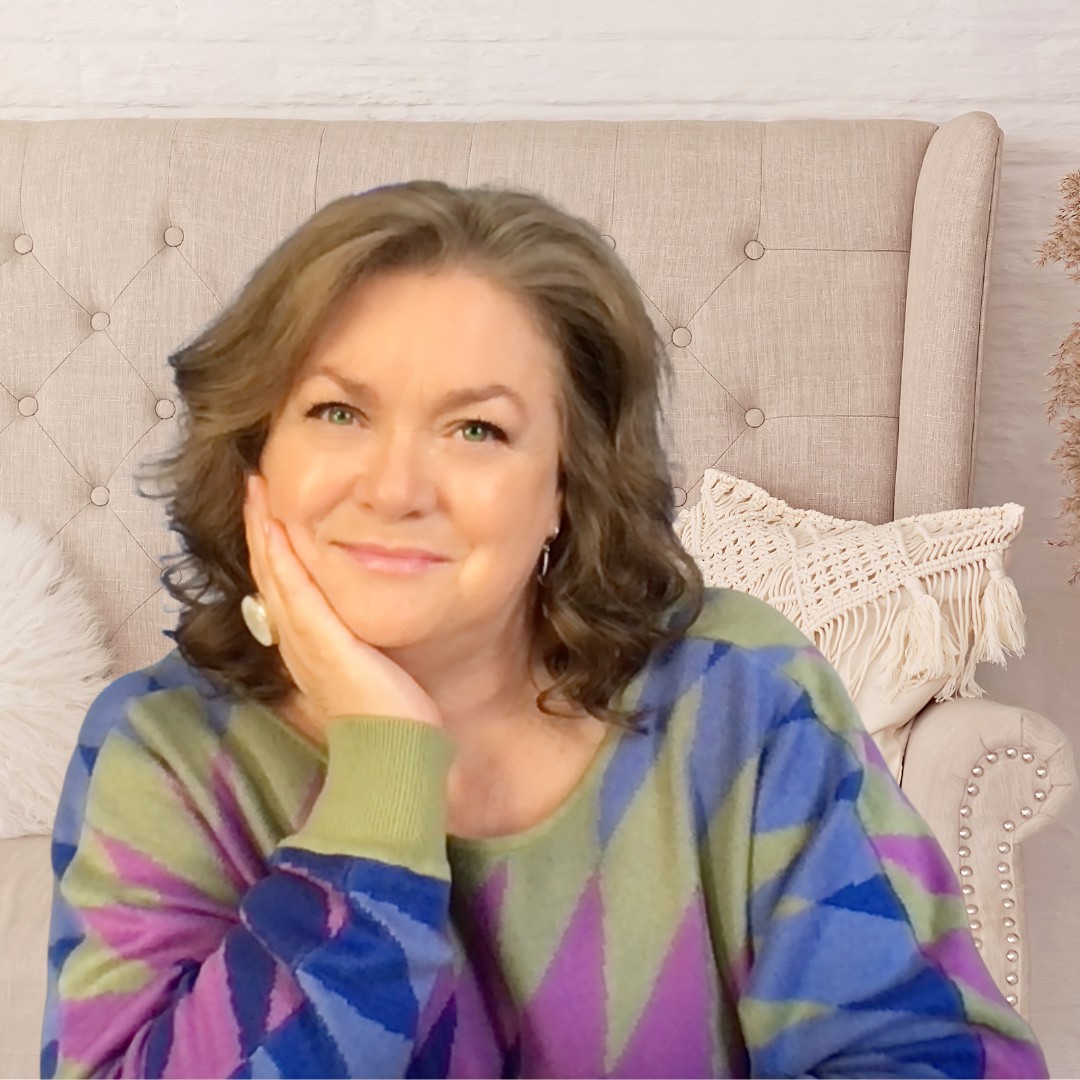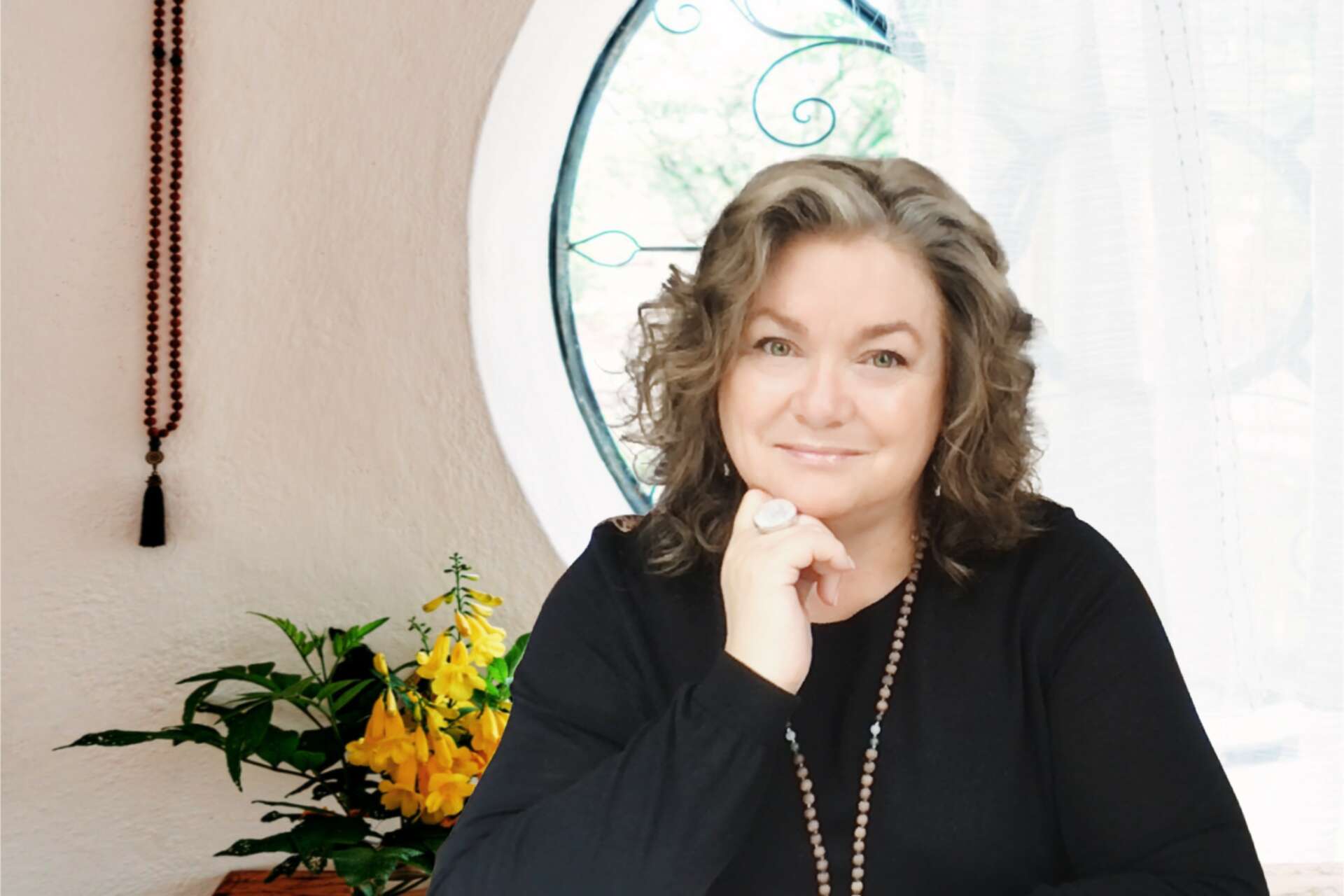We caught up with the brilliant and insightful Theresa Voigt a few weeks ago and have shared our conversation below.
Theresa, looking forward to hearing all of your stories today. What’s the best advice you ever gave to a client? How did they benefit / what was the result? (Please note this response is for education/entertainment purposes only and shouldn’t be construed as advice for the reader)
This is such a great question and I can honestly say it’s advice I give to LOTS of my clients.
“You are not who you think you are.”
I learned the hard way that our identity is transient. It’s temporary. It’s always moving, shifting, morphing, and is responsive to our circumstances and relationships.
Let me explain…
Identity is not only who you are, and it’s more than what you do. It’s how you’ve been taught to think, to feel, to behave, to judge. Some of those teachings are obvious, while others are subtle and live within the fabric of your family dynamics.
As a child you’re usually taught right from wrong. Yet what is right and what is wrong is subjective to the person teaching it. They will have learned it from their parents/family, through key people around them, their school teachers and mentors, and through their own life experiences.
So too it is with you. As a child you don’t have sophisticated filters that tell you the lessons being taught are good or bad for you. You’re simply being taught. And so like a sponge you soak it all up, trusting implicitly in the authority being displayed before you. This all speaks to the identity you are forming of who you are. An identity being projected onto you from those around you.
For instance, when you did something which your parents approved of as a child, you may have been praised for that, told ‘good boy’ or ‘good girl’. With repetition you learn that when you do that same thing you are viewed as good. In order to continue to receive that kind of praise, you may have continued to do that same thing.
Likewise, if you did something viewed as ‘bad’ by your parents, you would have received discipline or censure and your behaviour corrected. You would have learned that doing that same thing didn’t please people around you and made them feel sad or angry. Here you may have been called ‘bad boy’, or ‘bad girl’.
This is one of the simplest ways that parents teach their children what is acceptable and what is expected of them.
The beginning of an identity as a ‘good girl/boy’ or ‘bad girl/boy’ is forming.
Parents like to raise children to be like themselves (and yes this is a generalization). They don’t raise children to be different, they raise children to fit in.
They also raise children unconsciously to fulfil certain roles based on their own needs and situations. And so from a very early age you were taught to be a certain way, talk a certain way, think and feel a certain way, in order to fit in to the family.
So in your psyche you are continually being programmed, over and over again, to believe you are a particular kind of person. To have an identity. An identity that was curated and passed on to you.
These early teachings form the basis for your world view. Through repetition they are built into your unconscious so you don’t question the way you are.
As you grow and mature the way you move through life is determined by those early teachings. They give nuance and perspective to your choices, relationships, friendships, and career. It all influences how you see yourself and who you believe yourself to be.
As you continue to grow and mature you may sometimes begin to question what you were taught as alternative ways of understanding the world come into your experience. You’ll notice you repeat patterns of behaviour, of thoughts, of feelings. As you face the reality of your life and the patterns you unconsciously repeat, questions may arise. Questions which lead you to feel less comfortable with you think you are, and may lead you to ask, why am I this way? Who am I really?
When you begin to practice self enquiry, answering those questions becomes a wonderful exercise in uncovering your truth.
Understanding that family teachings and dynamics have played a foundational role in who you think you are, based on who you were told and taught you were, positions you to begin exploring possible alternative versions of you.
And this is when you begin to see that perhaps, just maybe, who you think you are is not ALL of who you are.
One of the next questions you will begin to ask is this: who am I WITHOUT this identity programming? Who was I BEFORE my parents taught me who to be.
This leads to discoveries and personal growth which can change your life in so many ways.
That one question alone can lead to shifts in perspective around personality, behaviours, choices, patterns, beliefs, judgements, vows and promises. The basic tenets of your life are examined and with the insight gleaned and knowledge gained, change can begin to be made.
The results of this kind of self enquiry around identity have resulted in some of the biggest life shifts my clients have experienced.
From leaving marriages, changing careers, owning sexuality, moving states/countries, to changes in body image, self love, and total acceptance of the joy of being whoever you are in every moment.
So when I have a client come and say, this is who I am. I usually respond with, is that all?
Because I know that when they dig down and start to inquire and question, they’ll be like a miner panning for gold. And once they uncover that first nugget, they won’t want to stop. And that’s because I know that who they are, underneath all the programming and projected beliefs, is an extraordinary soul wanting to be free to live life all in.


Awesome – so before we get into the rest of our questions, can you briefly introduce yourself to our readers.
I’m Theresa Voigt. Healer, channel, hypnotist, coach, meditation teacher. I am a Wise Woman. A lover of tea, kindness, presence, and all things that help you be more YOU.
I started questioning who I was when I began a journey to understand my mother. Our relationship had always been a difficult one and I wanted to find ways to separate myself from her, from her story, and if I’m honest from her abuse.
So I began a quest to find myself, the me that was whole and complete without her influence.
At first I explored Reiki, becoming a Master Teacher. Then found RAW (Rekindled Ancient Wisdom). This led me to learning and studying neuroscience, cognitive behavioural therapy, integrative change work, and hypnosis.
During all this unpacking, unveiling, releasing, and redefining, I left my 24 year marriage and started my life over. The need to be ME, without the judgements, the projected limitations of others, was overwhelming.
I learned a huge lesson, and one that inevitably gets reflected back to me through my clients: that denying the limitless nature of your own potential can be suffocating and soul destroying.
I believe with all my heart that we are here to have a very human experience, but one that includes a deep connection to our soul self. Denying both aspects of who we are prevents expansion, limits growth, and ultimately hurts our soul.
So my journey has been one of coming home to myself. To falling deeply in like and love with all parts of who I am, and to look forward to uncovering more and more hidden aspects as I continue to move through life.
This often forms the connection with my clients, this wanting to be whole, to come home. I understand what it’s like to live disconnected from your truth. To be living a life dictated and determined by others. To feel to be accepted you have to fit in a box of others making. And I resonate deeply with the need to step outside that box and stand free in your own energy, your own space, your own beliefs.
Clients will often come to me saying they feel lost, broken, stuck. That they know they’re supposed to live a bigger life, yet they keep living small.
We work through layers of beliefs, patterns, and projections. All the unconscious programming that has kept them living the way they have been. It’s not always easy work. Sometimes it’s intensely personal and overwhelming. This is when we move gently, holding space that is intentional and loving.
The unconscious mind has worked hard to build and hold onto those programs and will spark the nervous system to move into an activated state. All the resistance patterns will often come to the surface. And that’s ok because we simply work through them at the clients pace.
The goal of all sessions is determined by the client. My part is to hold space of a high enough frequency that their potential can be seen and accessed. Whether it’s with energy healing, hypnosis, integrative change coaching, meditation, or any other number of tools we can bring in, we’re always working at a pace that meets the clients needs with compassion and kindness.
The shifts never stop surprising me. I’m often in awe of how deep my clients will go and how strong they feel as a result. This type of work is empowering on so many levels and brings the clients to a point of being able to make real changes, in real time, as inspired action is so much easier to access.
We often hear about learning lessons – but just as important is unlearning lessons. Have you ever had to unlearn a lesson?
I learned very early in life that to survive I needed to be useful.
That’s a lesson I had to unlearn many times before I finally understood that usefulness itself wasn’t the issue, it was being useful to everyone else and never to myself that was the problem.
I was born to a narcissistic mother who had experienced immense trauma in her life. I wasn’t wanted as I trapped her in a difficult marriage where her trauma and insecurities were constantly feeling raw and exposed. Because of this I was raised to be very useful to her.
Any achievements I gained were not celebrated, my emotions were dismissed, and I was relegated to the role of duty bound daughter/caretaker.
It took decades for me to understand that my useful to her was the chain keeping me locked in a prison.
And yet in true narcissistic fashion, I had been convinced that her pain and suffering was due to my own shortcomings.
As I grew up and eventually moved away from her, even though the control and manipulation kept me in service to her, distance slowly began to give me the advantage of a changing perspective. I started to work on our relationship, my part in it at least. I explored energy healing and other modalities to assist me to come to terms with her meanness. Along the way I learned that me being useful was also playing out in other relationships; in friendships with women, work colleagues, bosses, my husband.
What followed was a period of intense un-learning. I had to un-learn how to be around people. To understand the difference between being of service, and being in servitude.
Being of service I learned was a choice I could make. The decision was entirely my own.
Being in servitude left no room for independent thought or action. It was about being absolutely responsive and predictive to someone elses needs.
And always placing them on a pedestal above me. That was a huge realisation, that without knowing it I automatically assumed the role of the less. And placed others in the role of more (whether they deserved to be there or not).
This impacted my confidence, the way I showed up, how I interacted with them, and ultimately led to me being bullied and excluded from social circles.
The lesson of stepping out of usefulness to others, and into loving service to myself took man-years and I had to undo a lot of childhood programming and trauma of my own. I could see how the way I showed up: voiceless, attentive, obedient, and willing to please, created an energetic environment where I was open to manipulation and to be used.
Loving service was something new that I had never experienced, certainly not towards myself. But slowly I turned the mirror so I could see myself for who I was. Who I had been trained to be. And with work and time I started to choose a new way of being. A way where I could choose me, first.
This is when I learned the power of a firm no.
It was a slow start with no, but with time and patience and practice I started to employ a new response to invitations. Where in the past I would have been asked to do something, to show up, to help out, and I would have acquiesced willingly, gratefully, instead I began to pause, and breathe, and if the invitation felt heavy I would gently say, no.
That practice morphed into either a firm no, or a hell yes response. If I felt anxious, resentful, or uninterested by an opportunity, it was a firm no. However if I felt uplifted, expanded or excited it was a hell yes!
There was always the invitations of obligation however. And those tripped me up for a while until I learned to look for the joy in them. This meant I would say yes out of a considered sense of obligation, and attend while keeping myself open for micro interactions which would make me smile.
And that changed things for me.
I was learning that saying yes to myself didn’t have to mean I didn’t care for someone else. What it did mean was that I was prioritising my own happiness, my own well being, over someone elses need for me to be useful to them.
I was learning to be useful to myself.


What do you think helped you build your reputation within your market?
I recently won an award from Global Health & Pharma for Most Trusted Transformational Energy Healer, Australia. And that award sums up just how I built my reputation.
Being of loving service to my clients means holding a safe and confidential space for them to explore what are often deeply personal pain stories. If I can’t be trusted to hold that space, to see them with non-judgement, to hold their highest potential in front of me, then I really don’t think I should be doing this work.
And the other part of this is that I’m actually very good at what I do! My ability to bring all my skills and talents to each session means that each client is held in the fullness of my energy and my skills.
One of my gifts is being able to see someone in their fullest potential. It enables me to work in their energy and with their unconscious mind to bring forward that potential in a way that aligns with their truth.
Uncovering that truth is part of the process, and being able to alchemise it within their systems and structures so that they not only embrace it, but embody it, is one of my sweet spots. I love seeing peoples eyes widen as realisation hits them of what’s possible.
It’s this ability to see through to the heart of someone, combined with my ability to hold a loving space for their processes that sets me apart. The energy of the space is so high they almost have no choice but to rise.
Contact Info:
- Website: https://www.theresavoigt.com
- Instagram: https://www.instagram.com/theresa_voigt/
- Facebook: https://www.facebook.com/theresavoigtenergy
Image Credits
Images are my own or are purchased stock images.


